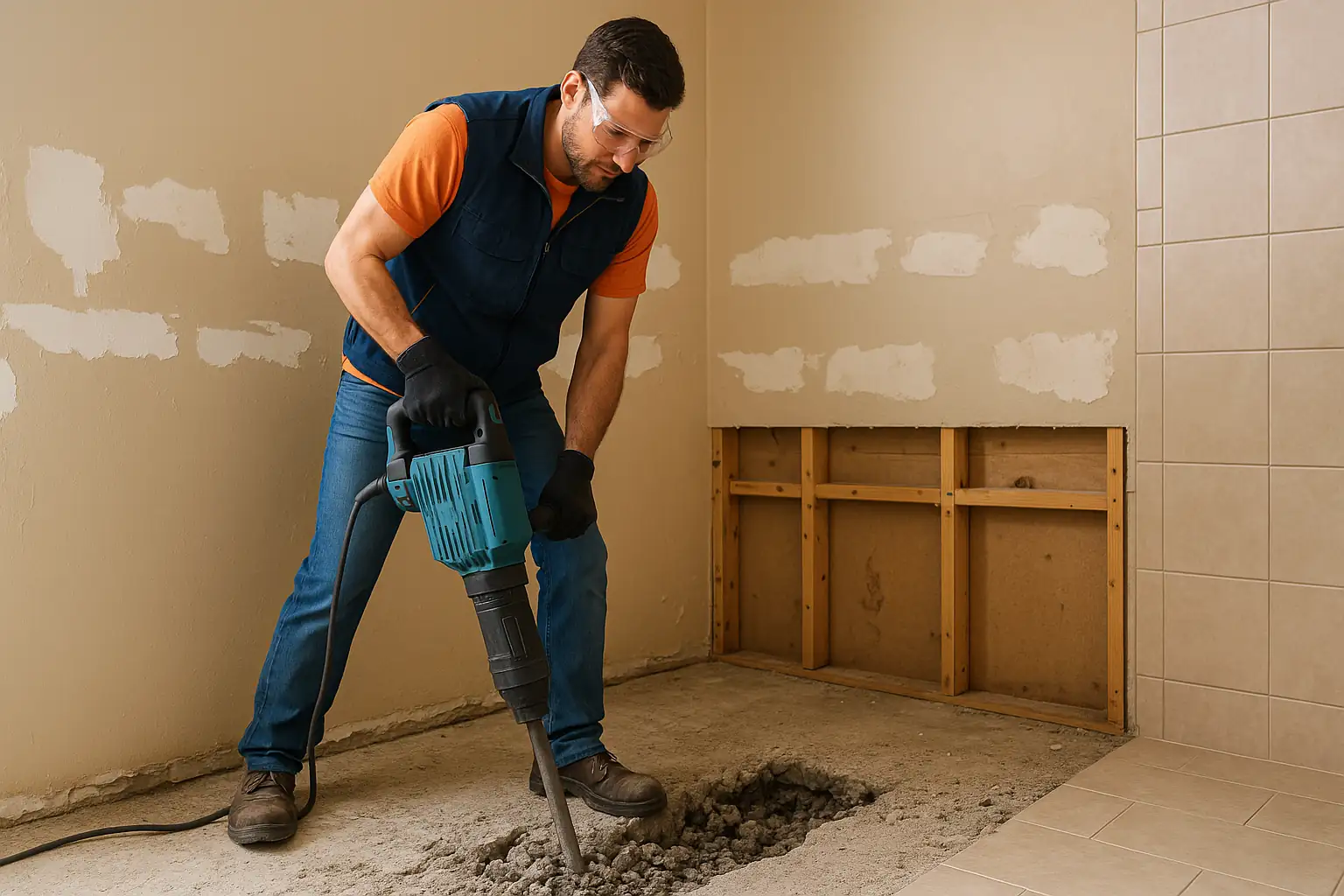Jun 20, 2025
Post-Tension Cables in Houston Homes: What You MUST Know Before Remodeling

When you’re remodeling a bathroom in Houston, there’s a hidden risk that can turn a simple project into a nightmare: post-tension cables. Most homeowners have never heard of them—until someone jackhammers the slab to move a drain and accidentally cuts one. If you want a team that knows how to avoid that disaster, start with a trusted local bathroom remodeling company in Houston.
Post-tension (PT) cables are heavy-duty steel strands inside your concrete slab. They keep the slab tight and help resist cracking—especially with our lovely, shifting Gulf Coast clay. Sounds harmless, right? It is… until someone cuts into the slab without locating the cables first. Then you’re looking at structural damage, huge repair bills, and in worst cases—danger.
“If they cut through that thing, man… it can cause serious problems.”
Real-World Example
On a recent tub-to-shower conversion, we opened the floor and found a PT cable running right along the old tub drain line. A blind cut would have sliced it. Instead, we scanned, revised the layout, and routed safely—no drama, no delay, no damage.
Cutting a Bathroom Slab: Risks vs. Best Practices
Our PT-Safe Process (No Guessing)
- ✔ Scan the slab first to know exactly what’s inside
- ✔ Plan the layout to minimize cutting and align with existing runs
- ✔ Engineer involvement when a tendon or grade beam is close
- ✔ Explain the plan so you know why we take these steps—safety isn’t optional
Thinking About Moving a Drain? Ask These First
- ✅ Do you know if my home has post-tension cables?
- ✅ How will you locate and mark them before cutting?
- ✅ Have you remodeled on PT slabs before—can I see examples?
- ✅ What waterproofing system will you use after the move?
If they hesitate—or say “what’s that?”—run.
Safer Layouts That Need Less Cutting
You can often avoid heavy slab work by choosing the right project path:
- Tub-to-Shower Conversion — keep drain proximity, gain everyday safety
- Shower Remodel — refresh finishes, niches, and glass over a proven waterproof system
- Full Bath Remodel — when re-configuration is needed, we plan for PT safety from day one
Bottom Line
Post-tension cables aren’t scary—if you know what you’re doing. In the wrong hands, a simple upgrade becomes a foundation crisis. We do it right the first time: safe, smart, zero surprises.
FAQ: Post-Tension Slabs & Bathroom Remodels
Q: How do I know if my home has post-tension cables?
A: Many Houston slabs are PT. We look for slab edge stamps/plates, builder plans, or just scan the slab to confirm before demo.
Q: Can you still move my shower drain on a PT slab?
A: Often, yes—with scanning, careful layout, and sometimes an engineer’s input. When movement isn’t advisable, we propose alternatives that meet your goals without risky cuts.
Q: What happens if a cable gets cut?
A: It’s dangerous and can compromise the foundation. Repairs require engineered procedures and specialty PT contractors—costly and avoidable with proper planning.
Q: Do I need permits for this?
A: Often. Plumbing relocations and structural work typically require permits/inspections. We handle the permitting process as part of your project.
Q: What waterproofing do you use after slab work?
A: We install a documented system (e.g., KERDI) with correct slope and a 2″ shower drain to prevent standing water and leaks.